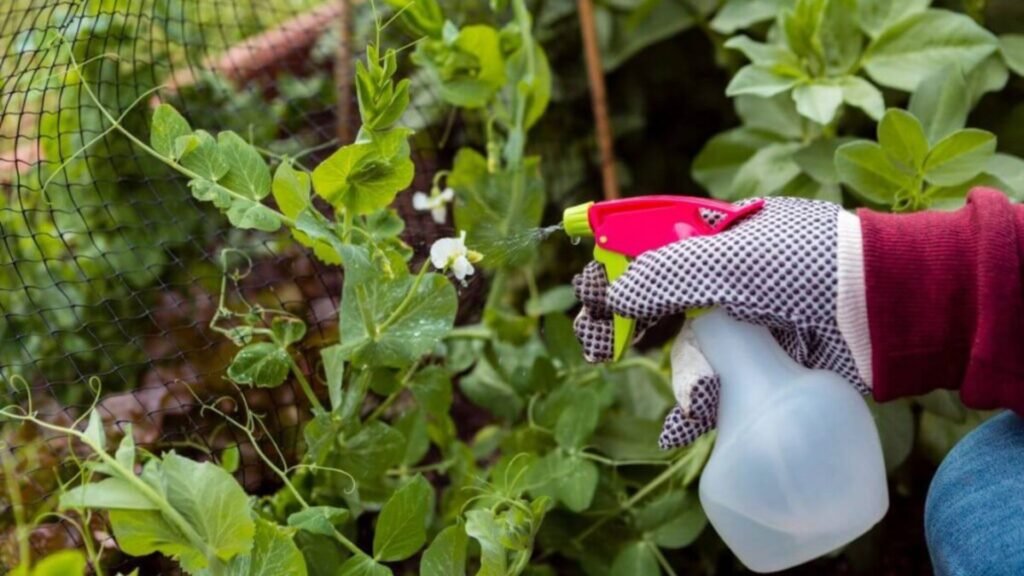Ways to Prevent Pests in Your Flower Garden
Maintaining a beautiful flower garden can be a joy, but pests can quickly turn it into a frustrating challenge. Fortunately, there are several effective ways to prevent pests in your flower garden without resorting to harsh chemicals. Here are some tips to help you keep your flowers healthy and pest-free.

Choose Pest-Resistant Plants
One of the best ways to prevent pests in your flower garden is to choose plants that are naturally resistant to common pests. Many flower varieties have been bred for their resistance to insects and diseases. Here are some pest-resistant flowers you might consider:
- Marigolds: Deter aphids, mosquitoes, and nematodes.
- Lavender: Repels moths, fleas, flies, and mosquitoes.
- Chrysanthemums: Effective against roaches, ants, and Japanese beetles.
- Petunias: Naturally repel aphids, tomato worms, and asparagus beetles.
- Geraniums: Repel leafhoppers, red spider mites, and other insects.
Practice Good Garden Hygiene
Maintaining a clean garden can significantly reduce the likelihood of pest infestations. Here are some hygiene practices to follow:
- Remove Debris: Clear away dead leaves, fallen petals, and other plant debris regularly. This helps eliminate hiding places for pests.
- Weed Regularly: Weeds can attract pests and provide them with an easy entry point into your garden. Keep your garden weed-free to minimize pest problems.
- Prune and Deadhead: Regularly prune your plants and deadhead spent flowers to promote healthy growth and reduce pest habitat.
Encourage Beneficial Insects
Not all insects are harmful; some are beneficial and help control pest populations. Encouraging these natural predators can keep your garden healthy. Here are a few beneficial insects and how to attract them:
- Ladybugs: Feed on aphids, whiteflies, and other soft-bodied insects. Attract them with dill, fennel, and yarrow.
- Lacewings: Their larvae consume aphids, caterpillars, and mealybugs. Attract lacewings with dill, coriander, and cosmos.
- Hoverflies: Larvae eat aphids and thrips. Flowers like alyssum, marigolds, and yarrows attract hoverflies.
- Praying Mantises: These general predators feed on a wide range of pests. Attract them with plants like marigolds and dill.
Use Natural Pest Repellents
Natural pest repellents can help keep pests at bay without harming your plants or the environment. Here are some effective natural repellents:
- Neem Oil: This natural oil can deter a wide range of pests, including aphids, spider mites, and whiteflies. Mix with water and spray on affected plants.
- Diatomaceous Earth: This fine powder is made from fossilized algae and is effective against slugs, snails, and other crawling insects. Sprinkle it around the base of your plants.
- Garlic Spray: Garlic has natural insect-repelling properties. Crush a few garlic cloves, mix with water, and spray on plants.
- Soap Spray: Mix mild liquid soap with water to create a spray that can deter aphids and other soft-bodied insects.
Implement Companion Planting
Companion planting involves growing certain plants together to repel pests and encourage healthy growth. Here are some beneficial pairings:
- Marigolds with Roses: Marigolds can repel aphids and nematodes that might harm roses.
- Basil with Tomatoes: Basil can repel whiteflies and tomato hornworms.
- Nasturtiums with Cucumbers: Nasturtiums can deter aphids, beetles, and other pests that affect cucumbers.
- Chives with Carrots: Chives can help repel carrot flies and aphids.
Regular Monitoring and Early Intervention
Regularly inspecting your garden for signs of pests can help you catch problems early and prevent them from spreading. Here are some tips for effective monitoring and intervention:
- Inspect Frequently: Check your plants regularly for signs of pests, such as holes in leaves, discolored spots, or visible insects.
- Handpick Pests: For larger pests like caterpillars and beetles, handpicking can be an effective control method. Wear gloves and remove pests manually.
- Use Barriers: Physical barriers, such as row covers or netting, can prevent pests from reaching your plants.
- Water Wisely: Overwatering can attract pests like slugs and snails. Water your plants in the morning to allow the soil to dry during the day.
Maintain Healthy Soil
Healthy soil promotes strong plants that are more resistant to pests. Here are some ways to maintain healthy soil in your flower garden:
- Compost: Regularly add compost to your soil to improve its structure and nutrient content.
- Mulch: Mulching helps retain moisture, suppress weeds, and regulate soil temperature.
- Rotate Crops: If you grow annual flowers, practice crop rotation to prevent soil-borne diseases and pests.
Conclusion
In conclusion, preventing pests in your flower garden involves a combination of choosing the right plants, practicing good garden hygiene, encouraging beneficial insects, using natural repellents, implementing companion planting, monitoring regularly, and maintaining healthy soil. By following these tips for preventing pests in your flower garden, you can enjoy a beautiful, thriving garden with fewer pest problems.



